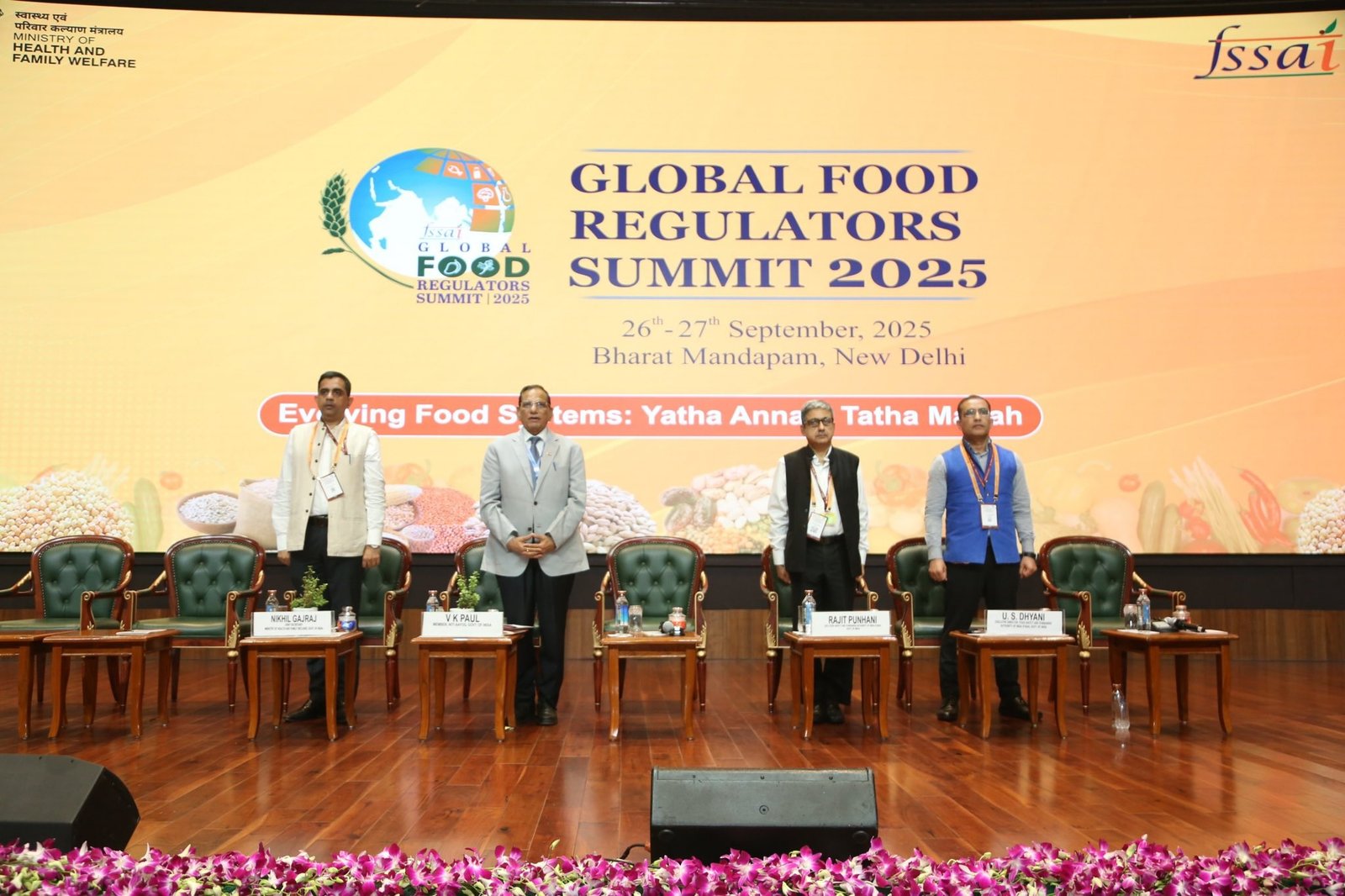Inside BENEO’s new pulse plant: pioneering sustainable protein from faba beans
Calls to strengthen international collaboration and build inclusive food safety frameworks
Global Food Regulators Summit (GFRS) 2025, hosted by the Food Safety and Standards Authority of India (FSSAI) under the Ministry of Health and Family Welfare, concluded at Bharat Mandapam, New Delhi, with the valedictory address by Union Minister of State for Health and Family Welfare, Prataprao Ganpatrao Jadhav.
The two-day summit served as a dynamic platform for international collaboration, policy dialogue, and knowledge exchange on critical issues of food safety and regulation, bringing together national and international regulators, policymakers, industry leaders, and experts.
Jadhav stated, “The theme for the summit, Yatha Annam Tatha Manah – meaning as is the food, so is the mind – encapsulates the profound connection between what we consume and our mental, physical, and spiritual well-being. This timeless principle reminds us that food is not merely fuel for our bodies, but the foundation of a healthy mind and conscious living.”
He also highlighted the transformative role of scientific research and innovation in advancing food safety and public health globally, while emphasising India’s commitment to harmonizing food safety standards internationally and urging global food regulatory bodies to collaborate in addressing emerging challenges.
Jadhav commended FSSAI for its efforts in reinforcing India’s food safety ecosystem, particularly through widespread capacity-building and grassroots initiatives. He noted that FSSAI has trained over three lakh street food vendors nationwide and highlighted the Eat Right India programmes, including the Eat Right Street Food Hub, as a model demonstrating that traditional food practices can align seamlessly with modern safety standards.
Jadhav acknowledge the participation of dignitaries from more than 70 countries and International Organisations, reflecting the collective commitment towards protecting consumers health and promoting fare trade.
Dr VK Paul, Member, NITI Aayog, in his special address stated that, “There is a need to harmonise global regulations for Bio-manufactured food and this sentiment has been echoed in this summit emphatically.”
He also highlighted that, through regulatory frameworks such as Ayurveda Aahara Regulations, traditional food must be validated and promoted. This also enables safe integration of our traditional and healthy food into the global system, he added.
Rajit Punhani, FSSAI CEO, expressed gratitude to both national and international delegates for their invaluable contributions and expertise during the discussions. He emphasised, “Together, we can build resilient, transparent, and future-ready food systems that safeguard public health and foster trust across borders.”
Second day carried forward the momentum with sessions on harnessing digital systems for surveillance and risk management, empowering regulators with next-generation skills, driving food safety through strategic public-private engagements, and on combating obesity through nutrition, fitness and consumer awareness. The discussions brought together rich perspectives from regulators, industry leaders, academia, and international organisations.
The summit also facilitated parallel sessions, including the CEO Conclave on Responsible Food Systems – Compliance and Consumer Trust, an Ambassadors’ Conclave on International Cooperation for Cohesive Food Regulations, a Roundtable Dialogue with MSMEs and Startups on strengthening food safety culture, as well as bilateral and networking engagements. The event also saw a special FSSAI–WHO Masterclass Programme on food safety, risk assessment, Codex, and WHO frameworks added depth to the technical exchanges.

